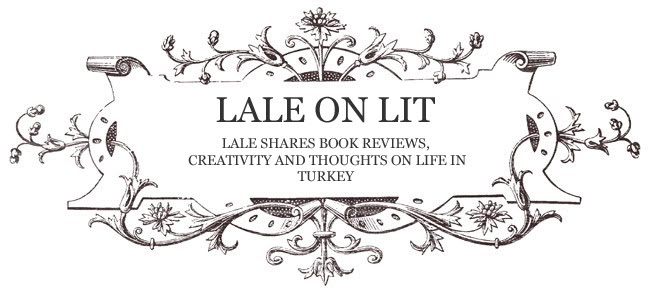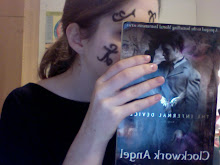So far during GPB '11, we've focused mostly on the reading side of books. Today, I'm excited to have Betsy Cornwell here to talk about the writing side of creating a strong heroine!
How do you create a strong heroine?
No, scratch that—how do you create a memorable character?
The answers that spring to my mind for the first question involve actual strengths: courage, intelligence, kindness, wisdom, physical or mental prowess of one kind of another, general awesomeness.
My instinctive answers to the second question, on the other hand, involve weakness. A memorable character is someone who struggles with something, who has real troubles to overcome—troubles that involve his or her own shortcomings. A memorable character can be selfish, irresponsible, vain, cowardly, immature, dishonest, or even stupid. One thing a memorable character can’t be, however—at least if she’s memorable in a good way—is perfect.
Essentially, a well-rendered strong heroine is just one category of memorable character. Like any character, she needs faults and shortcomings in order to feel realistic, exciting and interesting to a reader. We readers aren’t perfect ourselves (come on, I know it can be hard to admit), so reading about a perfect character isn’t likely to engage us.
But what’s a girl-power writer to do? Of course we want to create complex, interesting characters, but we also want to write heroines readers can look up to and admire, even emulate. Where’s the balance?
I won’t begin to claim to have all the answers, but I hope I can offer a few suggestions. First, something I think every beginning fiction writer should keep in mind: your character isn’t you.
This is where the whole “Mary Sue” notion comes in. If you haven’t heard the term before, it’s shorthand for a character who is so perfect, so precocious, such a paragon of every virtue and skill and beauty, that she is utterly unrealistic and pretty much sickening to read about. The name comes from a parody Star Trek fanfiction piece starring Lieutenant Mary Sue, the youngest, prettiest, smartest, bestest Starfleet officer ever to grace the final frontier. You can read more about it here—and do; it’s highly entertaining.
A Mary Sue is often a thinly-veiled placeholder for the writer herself, or for the way she wishes she could be. If you gave your heroine your own name, or a slight variation thereof, that’s one indication you could be on dangerous territory. If she has a special, unique eye or hair color that you always wanted, if she has the smile or boobs or legs or genius guitar-playing and spaceship-building skills you always longed for, that can be a warning, too.
On the other hand, reading and writing are often forms of wish fulfillment, and it’s completely okay to get a story idea from something you wish would happen or some way you wish you were. The heroine in my first book is a selkie. Did I grow up totally wishing I were a selkie? Absolutely! In fact, knowing that about myself made me somewhat terrified I’d created a Mary Sue when I first drafted Tides.
The way I got past that fear was by designing my characters not around their strengths, but around their flaws. I already loved my characters--they're still my imaginary friends--so in order to make them real, I needed to think about what made them unlovable. I found that was a really helpful way to make them well-rounded. My hero can't manage to see things from any perspective but his own, especially at the beginning of the book, and he has a tendency to put his foot in his mouth and say exactly the wrong thing at important moments. My heroine puts her need for independence before her and her family's safety, and she's intensely stubborn. I don't think I can say much more without spoilers, but you get the idea.
Try it as a writing exercise, or think about whether you can define your favorite characters by their flaws, too. My favorite book of all time is I Capture the Castle by Dodie Smith, and the book's narrator, Cassandra, is an amazing character and a strong young woman whom I definitely try to emulate. However, she has flaws aplenty, and they're part of what makes her so great. As another character points out, she's very "consciously naive," she falls in love too easily (though, come on, what teenage girl doesn't) and she often views her family in an unclear or unfair light. If she didn't have those shortcomings, though, she wouldn't be nearly as endearing or, ultimately, as admirable as she is. She wouldn't be my beloved Cassandra; she'd just be another Mary Sue.
Most rules for writing, of course, should be broken at some point or another, and the Mary Sue trope is one you should definitely mess with if you feel the need. Still, I do think it's important to remember that flaws are just as important as strengths when it comes to creating interesting characters, and 'strong women' are no exception.
Real women aren't two-dimensional paragons, so neither should fictional women be. The women I most look up to certainly aren't perfect, and none of them are seven feet tall with long shampoo-ad hair, genius IQs and sparkly violet eyes. But they're bad-ass ladies who overcome whatever shortcomings they find in themselves with determination, hard work, creativity and passion. Those are the kinds of characters I want to read about, and the kind I hope younger readers will emulate--don't you?
Betsy Cornwell is a writer and an MFA student at Notre Dame university. She also blogs, tweets, and writes a column (one I love to read!) for the Teen Ink website. She is represented by Sara Crowe at the Harvey Klinger agency.












No comments:
Post a Comment